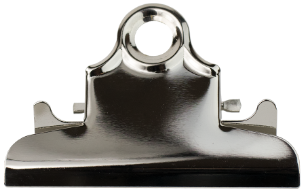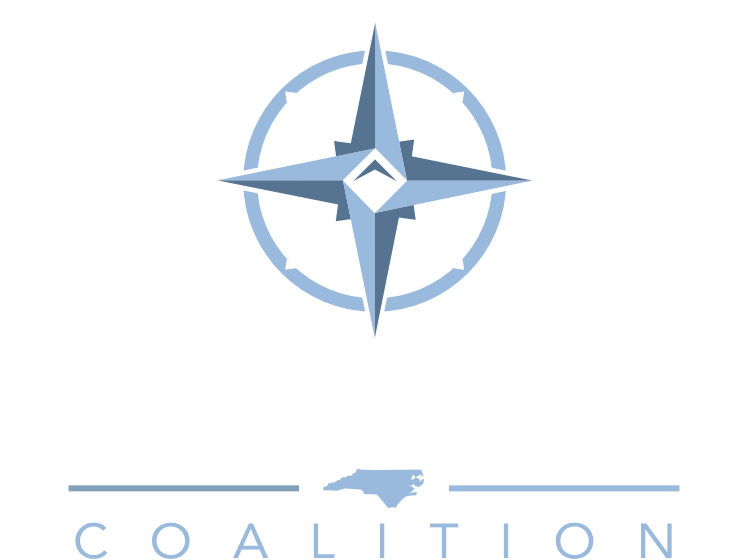On January 20th, the Carolina Journal published the following op-ed by Ashley Vaughan, NC Values Press Director, entitled “Pregnancy care centers are worth every penny of state funding”:
Earlier this month The Assembly published an “investigation” about the funding provided to pregnancy care centers by the North Carolina General Assembly titled, How the NC Legislature Bankrolls Anti-Abortion Centers. Authors Ren Larson and Whitney Clegg built the case that pregnancy care centers deceive women, waste funds, and fail to meet industry standards for quality of care. Instead of providing objective reporting, this article repackages tired talking points meant to smear pregnancy care centers. This does a great disservice to those who serve disadvantaged young mothers and families in pregnancy care centers in our state.
A key source for Larson and Clegg’s article, Dr. Jonas Swartz, asserted that pregnancy care centers violate patient autonomy by using coercive tactics and promoting religious, pro-life ideology. Swartz, an OB/GYN and Duke University Medical School professor, researchespregnancy care centers. But far from being a dispassionate student of the topic, Swartz is unapologetically pro-abortion. He argued that women would die if North Carolina passed the 12-week abortion restriction and has called for unfettered access to abortion.
Swartz, ACOG, and other pro-abortion entities claim that pregnancy care centers impede access to “comprehensive care” — i.e. access to abortion. He is quoted in the article as saying that the centers’ “express goal is to intercept people who are going to seek abortion and talk them out of having an abortion.” Does the OB/GYN know that “people” don’t get pregnant — only women do? Are we really surprised, given his own ideology, by his criticism of pregnancy care centers?
Pregnancy care centers do exist to support a culture of life — a high calling for which there should be no apology. At the same time, they exist to serve women. They do this by providing counseling, material support, parenting classes, and healthcare services. But one of the most important ways they serve women is by educating them about all of their options before they make a permanent decision to end their pregnancy.
Wendy Bonano, president of Gateway Women’s Care in the Triangle, told me that while she and her staff all hold the belief that unborn life is valuable and worthy of protecting, they strive to provide clients with accurate and balanced information so that each woman can make her own informed decision.
Bonano said, “Our longing would be that a woman would choose life, not because she is being hoodwinked, but because the obstacle that is causing her to consider abortion is removed.”
We live in a confused culture that tells women that abortion allows them to be free, have equality with men, and pursue their dreams without the shackles of motherhood. And yet, says Bonano, often women come to Gateway traumatized after having an abortion. She’s heard the heartbreaking story again and again: the moment the suction starts, the moment she takes the pill… she regrets it.
There is an abortion reversal medication, but it only works if taken within 72 hours of taking the first abortion pill. Currently, abortion providers in North Carolina are not required to tell women seeking abortion that a reversal medication exists as a part of their informed consent. Contrary to Swartz’s claim, the pregnancy care centers are the ones who respect patient autonomy and the woman’s right to choose. They are the ones educating women on all of their options, including the abortion reversal medication. And they are the ones giving women diapers and maternity clothing, and encouraging them that they have what it takes to be a mother if that is what they choose.
Larson and Clegg also describe the frustrated efforts of state Sen. Gladys Robinson, D-Guilford, to obtain financial and other various records from North Carolina pregnancy care centers. The insinuation that funds are being wasted is supported by an example about money spent on decorations, furniture, and exercise equipment.
Bobbie Meyer, the state director of Pregnancy Care Fellowship, which administers the grants to the 79 individual pregnancy centers, was dismayed that key information about financial accountability that she provided to Larson and Clegg was left out of their article. Far from lacking oversight, each pregnancy care center is required to submit monthly and yearly financial reports.
Additionally, the state requires that an independent audit of a random sample of the centers is submitted to DHHS each year. If a committee of the NC General Assembly deems it necessary to collect more documentation than this, it has the authority to do so, but an individual senator, such as Robinson, does not. So far, efforts to obtain records seem motivated by a partisan agenda to discredit and defund pregnancy care centers rather than a legitimate concern about the welfare of young families in North Carolina.
Finally, Larson and Clegg sought to provide evidence that the care provided in pregnancy care centers fails to meet industry standards for care. This assertion was supported anecdotally with stories from dissatisfied clients, and by pointing out that the centers are not licensed, do not provide comprehensive prenatal care, and are not subject to the privacy law known as HIPPA. But clients of pregnancy care centers sign a request-for-service form that details the scope of practice and services offered and the centers’ confidentiality policy.
Additionally, they are informed that centers do not perform or refer for abortion. Women have all the information they need at the beginning of the appointment to determine if the services they are about to receive will meet their needs. Further, if they are dissatisfied, they have not lost anything but time, since the services are free.
In centers that provide ultrasounds or other medical services, a licensed physician oversees the care and writes protocols, including emergency precautions. If a woman has certain risk factors, sonographers are required to recommend the woman follow up with her own provider or an emergency provider. Opponents of pregnancy care centers would have you believe they lack professionalism, but they have policies and procedures in place to protect women from harm and their staff from liability.
Progressive legislators and left-leaning journalists may object to state funds going to pregnancy care centers, but the vast majority of Americans, including registered Democrats, support it. Since the Dobbs decision, North Carolina has become a destination state for women seeking abortion, and pregnancy care centers are experiencing increased traffic as a result. The General Assembly should increase the funding to these centers in order to promote a culture of life in our state and to provide resources for vulnerable women and babies.
After all, the work of pregnancy care centers is some of the most valuable work done in North Carolina. Go visit Gateway Women’s Care or any pregnancy care center near you, and you will meet people, mostly women, who work tirelessly to help other women navigate the transformational and trying experience that only women can understand: motherhood.
Ashley Vaughan is the press director for NC Values.











